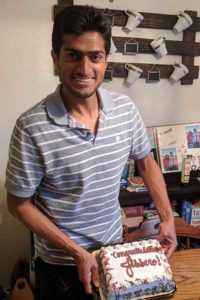This month’s Graduate Student Spotlight highlights Jibran Khan. A student in the Lockless and Kao Labs, Jibran works on developing strategies which can help transcribe a heterologous DNA cluster by overcoming intrinsic terminators in E. coli. Learn more about Jibran and his graduate experience in this month’s Spotlight below.
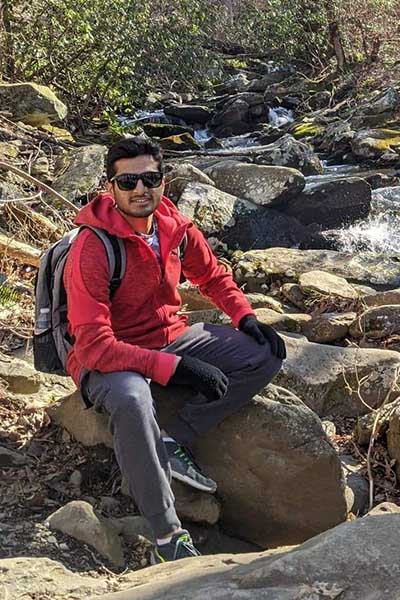
Jibran Khan
I am a 6th year graduate student, co-advised by Dr. Steve Lockless and Dr. Katy Kao (Dept. of Chemical Engineering). I was born and grew up in Pune (India), also known as “Oxford of the East”. My inclination towards science, especially the field of genetic engineering, grew when I came across a chapter on biotechnology in my 10th grade. I could not quit imagining how the field could potentially change things drastically in future. In my freshman year, I made a hypothetical model on “anaerobic human” (engineering a human embryo so that it can develop into a human which can survive the Martian conditions), as unethical as it sounds (but completely harmless, trust me), it was the reason I decided to pursue graduate school.
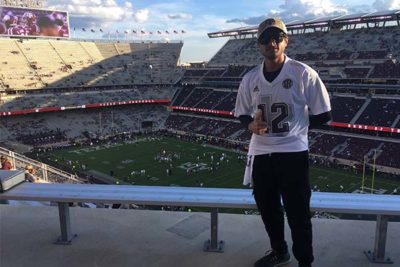 What is the best advice you’ve been given?
What is the best advice you’ve been given?
There are few quotes, from conversations, which resonate in my mind. Those are:
Nothing is for free in the world. Everything comes at a cost (this can very well apply to all walks of my life);
Always have a control during your experiments; and
You are the most expensive resource in the lab.
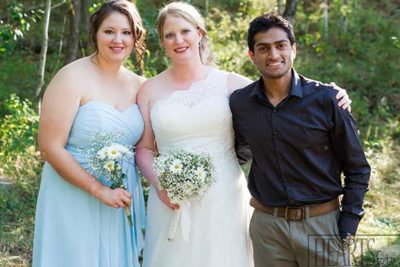 What is one thing people would be surprised to know about you?
What is one thing people would be surprised to know about you?
I think very few people know this, but Texas A&M has a cricket team (sport mostly played by commonwealth countries and growing immensely in USA as well). I have been part of the team and represented the University since my first year of graduate school.
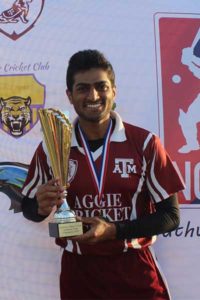 What do you think are your greatest strengths as a TA?
What do you think are your greatest strengths as a TA?
I certainly notice a change in myself as a lab instructor as compared to when I started teaching many years back. I have become more patient, guide students to an answer rather than giving it to them, assist them to overcome issues during lab, and try to focus on key aspects and steps during my lab introductions that will help them successfully conduct their experiments. Also, with years of experience, I know where students can possibly face issues with experiments. That is something I emphasize on as well.
What characteristics do you prize most in a colleague?
Three H’s: helpful, humble and hard working.
What advice would you give to a new graduate student?
There are certainly many things I have learnt along my way in graduate school. First and foremost, do not be afraid to fail. It certainly teaches you a lot and provides an opportunity to learn. It might seem like the end of the road at one point, but it never is. You must stick through tough times and keep finding alternatives to move forward.
Secondly, communication is key. Whether it is communicating to your PI’s, dissertation committee, or your lab mates. If you feel an experiment is not working, talk to your lab mates. Reach out to people in the department/university if you are thinking about an experiment but resources are limited. We have a diverse department, and they have been quite helpful to me and certainly will be to you.
Lastly, enjoy the journey. Graduate school is just not about finishing your thesis. It will certainly upgrade your scientific skills, but along with that it will also give you an opportunity to develop your personal and professional skills. At the end, it is up to us what qualities we want to embrace for good.
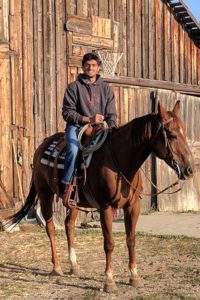 What strategies did you use to be successful as an undergraduate student? As a graduate student?
What strategies did you use to be successful as an undergraduate student? As a graduate student?
As an undergraduate, along with studies, I also competed in various science fairs. It helped me realize what I need to learn and which qualities I need to work on to be more successful. Besides that, I think I am fairly hard working. I used that as a tool during my graduate school. However, I must add, that hard work when coupled with knowing when to move on or choose an alternative route (with regards to your experiments) will make you more successful and help you achieve your goal faster.
What projects are you currently working on?
I am currently interning at a national lab. I am working on developing genetic tools to manipulate non-model thermophilic micro-organisms. In addition, I am also working on enhancing environmental DNA capturing ability of Pseudomonas putida. In my Ph.D. so far, I have developed a strategy which can help transcribe a heterologous DNA cluster by overcoming intrinsic terminators in E. coli.
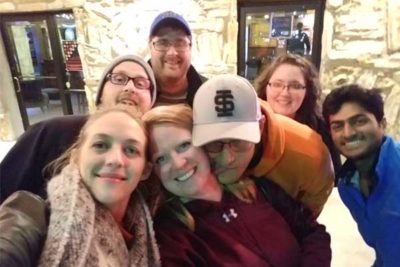 Why did you decide to pursue your graduate studies with the Department of Biology at Texas A&M?
Why did you decide to pursue your graduate studies with the Department of Biology at Texas A&M?
The department of biology has diverse research interests. Even though we end up in one lab, the opportunity to learn from various labs and their approach to a problem was very intriguing to me.
Are you prepared for what comes next? What are your immediate plans?
I have learned a lot in these years, and they have helped me to prepare myself to deal with what comes next. My immediate plans are to graduate (hopefully soon). I will start applying for industrial jobs in the near future.
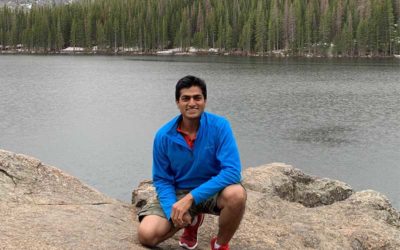 What was a memorable experience at A&M?
What was a memorable experience at A&M?
Leading the Aggie Cricket Club in Texas A&M University. Back in 2016, most of the Cricket team members graduated, and we were left with no one to run the club or represent the team. I, along with couple of other cricket enthusiasts helped revive/gain recognition to the club again. Since then, we have had a very competitive team but, it was just recently after a long wait, we won the 2019 edition of South-West championship beating the likes of LSU, UT-Arlington and UH Cougars. That has been one of the memorable experiences for me because after a lot of hard work and patience, eventually success did find its way to us.
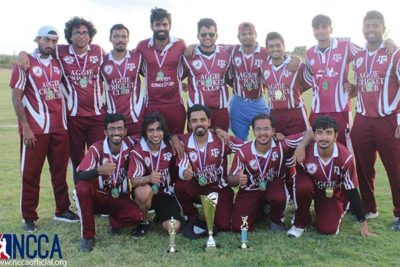 Give us 5 adjectives that describe you as a scientist.
Give us 5 adjectives that describe you as a scientist.
Adaptive, ambitious, courageous, reliable and hardworking.

